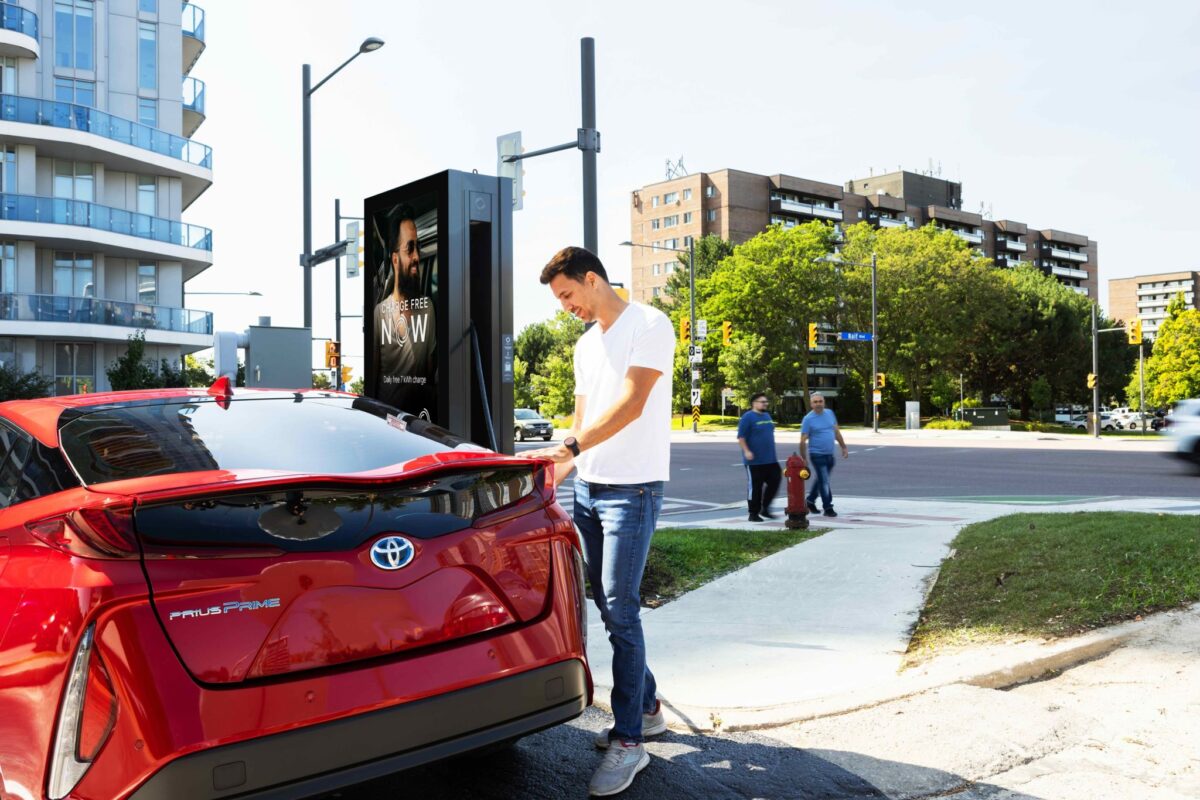Jolt has signed a $214 million (CAN 194 million) loan agreement with the Canada Infrastructure Bank (CIB) to help to fast track the expansion of its electric vehicle (EV) charging network in Canada where it plans to build a network across at least 6,5000 locations.
The Sydney-headquartered company said the CIB investment will facilitate the installation of up to 1,500 new kerbside EV chargers in Canadian cities, with each station providing access to 7 kWh of free fast-charging per user per day, which is equivalent to about 50 kilometres of driving range and 15 to 20 minutes of charge time, depending on the vehicle.
The deal comes just months after Jolt partnered with Canadian communications technology company Telus to install up to 5,000 streetside fast chargers across Canada.
Jolt Chief Executive Officer Doug McNamee said the partnership with the CIB represents “a significant vote of confidence” in the company’s technology – which is powered by 100% renewable energy – as the need for EV charging infrastructure grows around the world.
“Kerbside fast charging is critical to the transition to electric vehicles, and providing fast, free charging to those who do not have access to off-street charging is Jolt’s goal for its expansion,” he said.
“By expanding our EV charging infrastructure, we are making electric vehicle ownership more accessible and convenient.”
Jolt said the expansion in Canada is aiming to build on rapid international growth for the company following a 92% increase in its global network. Outside of Australia, Jolt also operates in New Zealand and the United Kingdom, and said that last year there was a 242% increase in EV charging energy provision year on year globally and the number of charging sessions globally jumped by 188%.
“Our ambitious plan is to build tens of thousands of sites over the next decade in major cities globally,” McNamee said.
CIB Chief Executive Ehren Cory said the strategic partnership with Jolt will remove a potential barrier to EV adoption.
“By investing in expanding EV charging infrastructure, we are supporting Canadians’ need for accessible and convenient charging points in urban centres,” he said.
The partnership also aligns with Canadian government plans to deploy 84,500 EV chargers nationally by 2029. The Canadian government is targeting 100% zero-emission vehicle sales by 2035 for all new light-duty vehicles.
This content is protected by copyright and may not be reused. If you want to cooperate with us and would like to reuse some of our content, please contact: editors@pv-magazine.com.









By submitting this form you agree to pv magazine using your data for the purposes of publishing your comment.
Your personal data will only be disclosed or otherwise transmitted to third parties for the purposes of spam filtering or if this is necessary for technical maintenance of the website. Any other transfer to third parties will not take place unless this is justified on the basis of applicable data protection regulations or if pv magazine is legally obliged to do so.
You may revoke this consent at any time with effect for the future, in which case your personal data will be deleted immediately. Otherwise, your data will be deleted if pv magazine has processed your request or the purpose of data storage is fulfilled.
Further information on data privacy can be found in our Data Protection Policy.